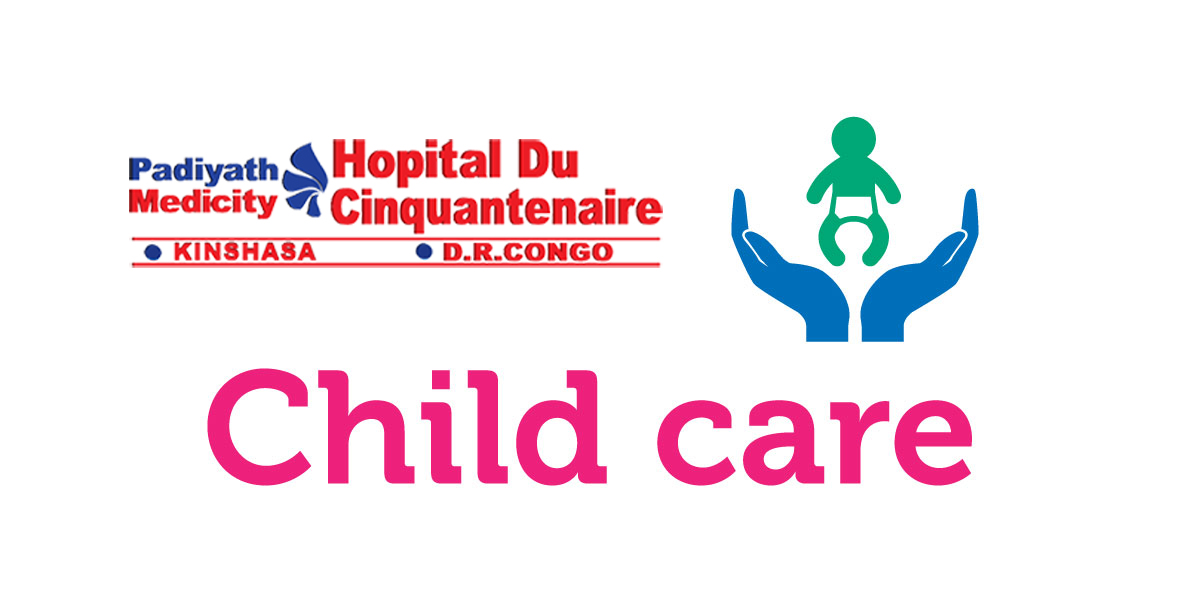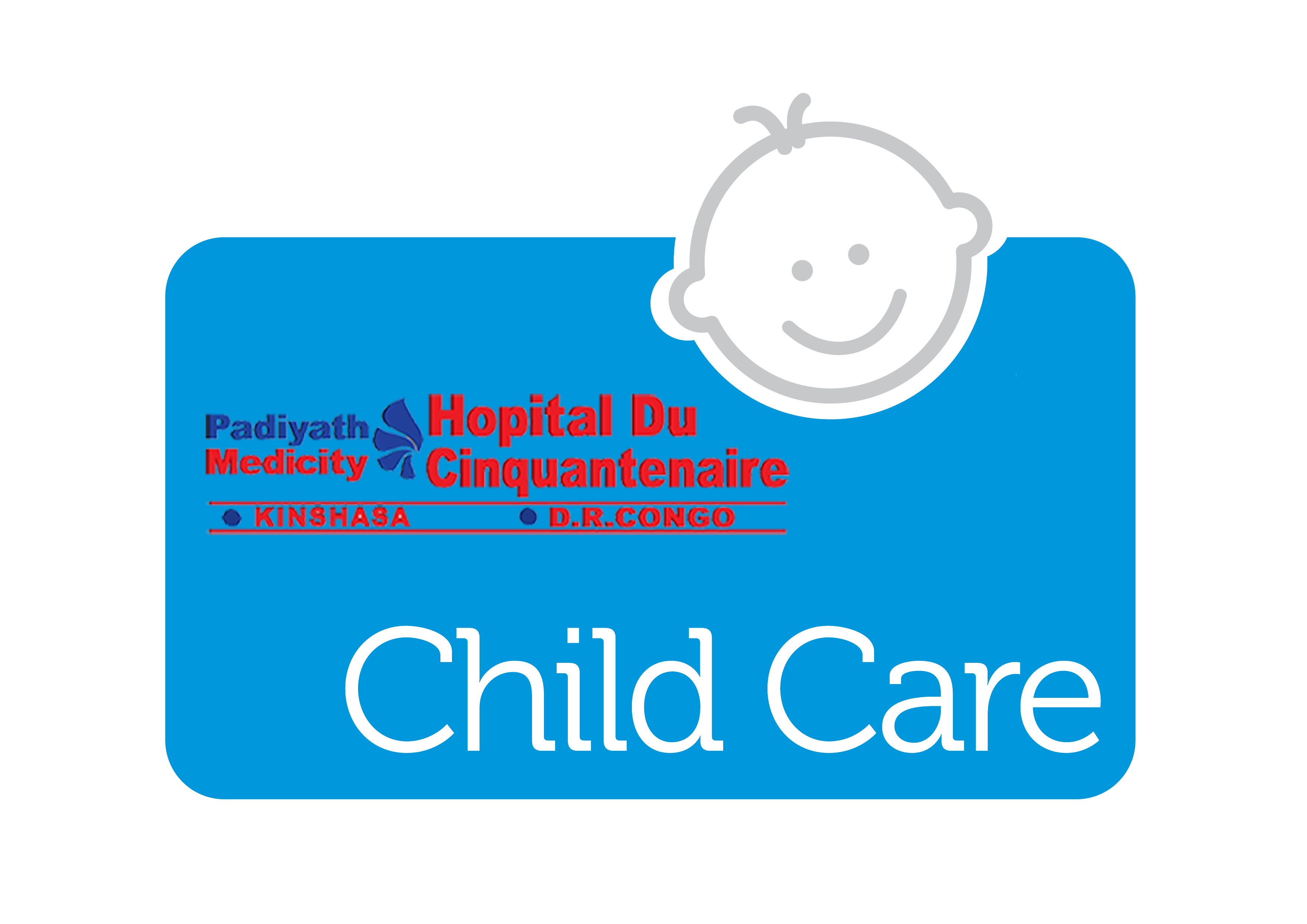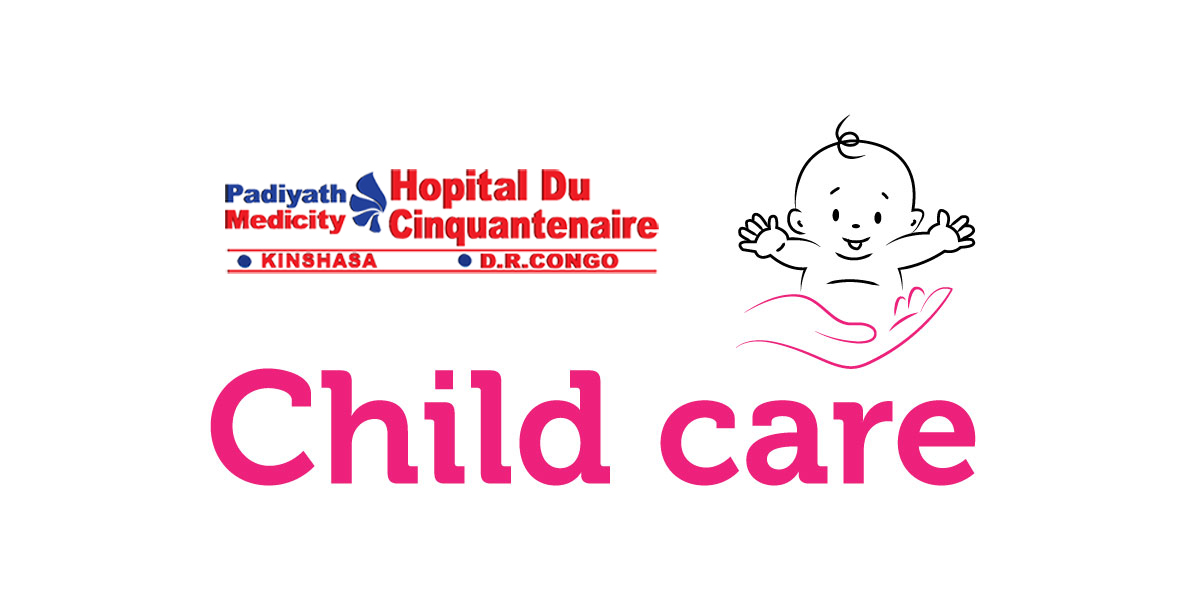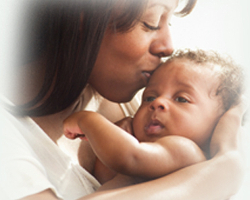Center For Female & Reproductive Sciences
Center for Female & Reproductive Sciences
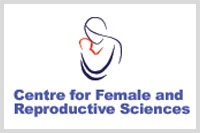
Center for Female & Reproductive Sciences at Padiyath Medicity - Hopital Du Cinquantenaire is a part of the multispecialty center for Minimally Invasive Surgery. We are Asians best Center for Minimally Invasive Surgery and there by an apex Center for Gynaec Laparoscopic Surgery. Our Center offers services for the reproductive health and gynaecological needs of women in a comprehensive, compassionate, sophisticated and dedicated manner with highest emphasis on patient safety. The entire team works with patients, families & partnered healthcare providers to assure high quality treatment, therapy and care. We Present Our Center as Multiple Sub Speciality Clinics in the Out Patient Department.
Padiyath Medicity - Hopital Du Cinquantenaire harnesses the latest in technology & medical innovations in the complete range of medical services offered to maintain optimal gynaecologic well being throughout the different phases of a woman's life, including those in her pre-reproductive, child-bearing & menopausal years.
Our Center provides round the clock comprehensive services through a group of qualified and experienced Obstetrics and Gynaecologists with utmost personalized care. Around the clock availability of postgraduate resident doctors and modern, well equipped labour rooms ensure correct and comprehensive care to mothers during delivery.
Services offered
- Obstetrics Services
- Adolescent Healthcare
- Menstrual Disorder Management
- Infertility Treatments
- Menopause Disorders Management
- Gynecologic Oncology
- Hematology Clinic
- Obstetrics Care
- Management of Medical Disorders in Pregnancy
- Gynecology Services
- Reproductive Endocrine Care
- Benign Breast Disorders Management
- Contraception & Family Planning
- Advanced Pelvic Endoscopic Surgery
- Urogynecology
- Anticoagulation Clinic
- Management of High-risk Pregnancy
- Painless Normal Delivery
Diagnostic Tests and Procedures
- Cervical cancer screening by PAP smear and HPV DNA testing
- Cryocauterization
- Screening Fetal Echo
- Monitoring of MCDA twins
- Colposcopy and Colposcopy-guided biopsy
- LEEP biopsy
- Ultrasound-guided procedure
- Monitoring IUGR babies with fetal Doppler
- Pipelle sampling.
Specialty Clinics
- Adolescent Gynaecology Clinic
- Infertility Clinic
- High Risk Pregnancy
- Family Welfare Clinic
- Menopausal Clinic
- Laparoscopic Surgery
- Well Women Clinic
- Cancer Screening Clinic
OBSTETRIC INVOLVES
Delivery
Delivery is the process of childbirth. The different types of deliveries are:
- Normal Birth/ Delivery: It is the natural way through which a mother can give birth to a baby through the vagina also known as the birth canal.
- Caesarean Section/ C-Section: It is delivery of baby, through abdominal incision. It can also be planned.
- Forceps Delivery: Forceps is tong-like instruments that are placed on both sides of the baby's head, enabling the birth attendant to pull out the baby from birth canal. Some other types of deliveries included Vacuum Extraction, Vaginal birth after care (VBAC), etc.
Family Planning Advice and Services:
We offer our patients comprehensive and compassionate family planning care. All women and men can have control over when, and if, they become parents. To get started, meet your gynecologist, who will educate you about birth control methods you or your partner can use to prevent pregnancy.
General Obstetrics Care:
Regular checkups and counselling during pregnancy.
Genetic Counselling:
It is a process of determining risk of passing on an inheritable disease to your baby. This is done through a series of blood tests and review a patient's family disorders in the Prenatal period.
High Risk Pregnancy Care:
A Pregnancy Can Be Considered High-risk for the following reasons: Pregnancy Induced Hypertension, Gestational Diabetes Mellitus, Recurrent abortions. Previous unexplained Intra Uterine Death or still birth, Intrauterine Growth Retardation, Preterm labour, Maternal age above 35 years, Hepatitis `B' and HIV in pregnancy, Previous LSCS, Pregnancy with Down syndrome fetus, Multiple pregnancy, Post dated pregnancy, Bad obstetric history, Chorio amnionitis, Intra-hepatic cholestasis, Term pregnancy with fibroid uterus, IVF conception, Obstructed labour, Failed instrumental delivery, Cord prolapse, Antepartum haemorrhage, Non-reassuring CTG on admission, Preterm premature rupture of membrane (PPROM), Pregnancy with previous uterine surgery, Rh isoimmunisation High risk pregnancy requires extra care and continuous monitoring for the well being of the mother and child.
Medical Termination of Pregnancy:
Also known as abortion is a medical way of terminating unwanted pregnancies.
NST/ Ante Natal fetal monitoring test:
NST is routine process, performed on expecting Moms, to track the well-being of the baby. We perform NST for various conditions such as high BP, diabetes, when the baby is less active, when the pregnant woman hasn't delivered even after due date, or when the child's growth is slower than expected.
Obstetrics Emergency:
It includes ectopic Pregnancy, Miscarriage, spontaneous with heavy bleeding; Obstetrics complications include Hypermesis gravidarum, incomplete abortion, etc.
Post Natal Care and Counselling:
Post Natal care refers to the period between the delivery of the child and up to 6 weeks of recovery time. We conduct a series of PNC programs such as yoga, and mild strengthening exercises to enable quick and healthy recovery of nursing moms.
Post Partum Sterilization:
It is a type of family planning. Sterilization is a permanent method of birth control. Post partum sterilization implies sterilization is performed after the birth of the baby.
Pre Conception Counselling:
Couples are counselled before conception. Our primary focus is on maximizing each couple's chances of delivering a healthy child and leading a happy life. We care for our patients, and so do we for their comfort and care.
GYNAECOLOGICAL TREATMENT INCLUDES
Vaginal, Laparoscopic and Abdominal Hysterectomy:
Surgery is done for removal of fibroid uterus, vault prolapse, Hysterectomy etc.
Cancer Screening:
Pap smear (detection of cervical cancer), HPV Infection Test (HPV infection is a precursor for cervical cancer, and the test is done for the detection of the same)
Gynaecology Oncology:
All type of gynaecological cancers are treated at Padiyath Medicity - Hopital Du Cinquantenaire.
Gynaecology Endocrinology:
It is the diagnosis and treatment of hormonal imbalance in connection with the menstrual cycle, ovarian cysts, involuntary weight gain, acne, osteoporosis, unwanted lactation, increased body hair or alopecia, the polycystic ovary syndrome, etc.
Hysteroscopy, Laparoscopy, Colposcopy Procedures:
- Hysteroscopy: A hysteroscopy may be done to find the cause of abnormal bleeding or postmenopausal uterine bleeding. A hysteroscopy can be used for Myomectomy for submucous fibroid or polyps.
- Laparoscopy: It deals with the identification or removal of cysts. Diagnostic laparoscopy is used for infertility.
- Colposcopy: It is the examination of the cervix, done when the Pap smear results are abnormal.
Infertility Counselling:
Infertility also refers to the state of a woman who is unable to carry a pregnancy to full term. Infertility Clinic entails a detailed consultation and complete infertility work up including follicular studies, IVF and counselling facilities .We understand emotional intensity involved in trying for a child and we will support you with ethical guidance and counselling at every step.
Menopause, Peri-Menopausal and Post-Menopausal Counselling:
Menopause is cessation of menstruation for 6 months at a stretch. If you notice bleeding after this period, you need a check-up.
Menstrual Disorder:
Menstrual disorder includes problem like: Heavy Bleeding, Irregular Period, and Pain during Period etc.
Puberty Disorder:
Puberty, also known as adolescence, is when a child reaches sexual maturity. Girls generally begin puberty by the age of 9 and complete by the age of 16. Some common changes in puberty include, getting periods, growing taller, development of breast, and getting pubic hair.
The Center for Female and Reproductive Sciences provides multidisciplinary services for women in the Women's Health Services at Padiyath Medicity - Hopital Du Cinquantenaire. Our Center Provides Multi Sub Speciality Clinics for Female health care and provide state-of-the-art diagnostic evaluation, clinical care and education for the well being of women at all stages of Life.
HIGH RISK PREGNANCY
While having a baby is a very exciting life event, it can also be stressful. And for some women, there are certain factors that can cause their pregnancies to be deemed high-risk. These issues can develop during pregnancy or can be the result of pre-existing conditions. This is why Padiyath Medicity - Hopital Du Cinquantenaire has a dedicated High-Risk Pregnancy Unit
Whether the pregnancy is complicated by medical or obstetrical factors, the physicians and staff at Padiyath Medicity - Hopital Du Cinquantenaire are dedicated to helping mothers and their babies obtain the best possible outcome.
The expertise of their medical team and ready access to State-of-the-art technology enable High Risk Pregnancy unit to provide a highly advanced level of care that's unique to it. Padiyath Medicity - Hopital Du Cinquantenaire has a complete range of healthcare services for women and babies, including a warm home like birthing centre offering comprehensive healthcare.
You are considered high risk, when...
- You are either under 17 or over 35 years old.
- You develop diabetes (gestational diabetes) during pregnancy.
- You have given birth prematurely in the past.
- You have a history of fibroids or other gynecologic problem.
- You have chronic medical condition such as Diabetes or Hypertension.
- Your pregnancy involves more than one baby.
- You have had a previous miscarriage.
- Prenatal testing indicates a suspected birth defect.
Medical condition affecting pregnancy
- Hypertension induced by pregnancy
- Insulin dependent Diabetes
- Hyperthyroidism
- Bleeding / Clotting disorder
- Acute immune disease
- Gestational Diabetes
- Thyroid diseases
- Renal (kidney) disease and gastrointestinal disease
- Medical complication like Heart disease, sickle cell disease, lupus, HIV
- Fetal growth restriction
Our Services
- Primary obstetric care for high risk pregnancies
- Obstetric ultrasound and invasive procedures
- Diabetes in pregnancy unit
- Consultations for high risk pregnancies
- Co-management of high risk pregnancies
High risk patients often require detailed assessment which involves:
- Genetic counselling
- Extensive antepartum and intrapartum fetal surveillance
- Prenatal screening and diagnosis with facilities which include biochemical marker screening, chorion villus sampling, amniocentesis, fetal blood sampling and advanced ultrasound for the detection of fetal anomalies. More than 5000 invasive procedures have been carried out in the last 5 years.
- Specialised neonatal care
The department is fully equipped with state-of-the-art facilities for providing the above mentioned care for these pregnancies in liaison with the division of Fetal Medicine, Genetics and Neonatology. Excellent care requires more than the latest technology and the most current advances in evidence-based medicine. We take pride in providing a caring and compassionate environment for our patients and their babies.
GYNAECOLOGIC LAPAROSCOPY
Gynaecologic laparoscopy is an alternative to open surgery .Laparoscopy involves visualization of pelvic structures (uterus, tubes & ovaries) with the help of a special optical device called as laparoscope. Diagnostic laparoscopy can determine whether you have conditions such as endometriosis or fibroids.
We have fully equipped dedicated theatres where these endoscopic procedures are performed usually as day care procedures and the patient does not need to be admitted overnight Laparoscopy generally has a shorter healing time than open surgery. It also leaves smaller scars. A gynaecologist, general surgeon, or other specialist may perform this procedure.
Virtually all of the operations that are done by traditional open surgery can be performed by laparoscopy.
Patient Condition Treated
- Endometriosis
- Ovarian Cyst or tumours
- Pelvic abscess (pus)
- Infertility
- Reproductive cancers
- Uterine fibroids
- Ectopic pregnancy
- Pelvic adhesions (painful scar tissue)
- Pelvic inflammatory disease
Laparoscopic treatments
- Hysterectomy (removal of the uterus)
- Removal of ovarian cysts
- Blocking blood flow to fibroids
- Adhesion removal
- Burch procedure for incontinence
- Removal of the ovaries
- Removal of fibroids
- Endometrial tissue ablation (endometriosis treatment)
- Reversal of tubal ligation (contraceptive surgery)
- Vault suspension to treat prolapse
The results of these procedures are usually good. This technology allows the surgeon to easily see and diagnose many problems. Recovery time is also shorter compared to open surgery.
Hysteroscopy:
Hysteroscopy is a surgical procedure that enables us to diagnose and operate on pathologies inside the cavity of the uterus. This consists of the introduction of an instrument with fibre optics called hysteroscope, through the cervical canal, which enables us to visualize the cavity of the uterus. We can diagnose and treat any existent uterine pathologies simultaneously.
Different surgeries performed hysteroscopically include:
- Removal of fibroids
- Some uterine malformations (septum or partitions)
- Tubal cannulation (Obstructed Fallopian tubes)
- Removal of polyps
- Intrauterine adhesiolysis
FERTILITY UNIT
Parenthood lies at the very heart of most couple's life which makes the grief of infertility all the harder to bear, keeping this fact in mind, Padiyath Medicity - Hopital Du Cinquantenaire initiated this state of art IVF lab as part of fertility Unit since then there is no looking back in Africa. The members of the team keep themselves abreast with the ever improving techniques thereby fine tuning the centre to one of the Africa's leading Fertility Clinic.
This is a tertiary care infertility centre dedicated to providing comprehensive fertility & reproductive health care in a personalised & friendly environment. Infertility Clinic entails a detailed consultation and complete infertility work up including follicular studies, IVF and counselling facilities. We provide all infertility services from simple medical management (ovulation induction), surgical treatment (Open surgery & microsurgery / fertility promoting endoscopic surgeries) to ART procedures (IUI & IVF / ICSI) under one roof.
It also holds a licence for intra-uterine insemination (IUI), donor insemination (DI) treatments and the storage of sperm. Our centre can help you achieve your goals of parenthood through technology, innovative research and highly trained physicians, embryologists, fertility nurses and ultrasonographers.
Services offered:
Initial Assessment and Investigations:
Our team is dedicated in helping you achieve your goal of taking a baby home. At your initial consultation we evaluate you completely to decide which mode of treatment is best suitable for you. A detailed medical and surgical (past and present) history of the couple is taken. This is followed by medical examination and infertility evaluation. We request a semen analysis as part of baseline investigation and evaluate the tubes if necessary in the female partner as part of our preliminary investigation. Baseline hormonal profile (FSH, LH, Thyroid profile, Prolactin, etc.) is also evaluated, if required.
The outcome of the examination and investigation decides the best course of action and nature of the procedure to be undertaken. There are various fertility enhancing procedures that may help you to achieve a pregnancy and a decision is taken after the initial assessment.
Endoscopic procedures
Endoscopy is the examination and inspection of the interior of body organs or cavities using a device called an endoscope. Our unit performs all fertility promoting endoscopic procedures. Endoscopy involves laparoscopy as well as hysteroscopy. Laparoscopic procedures helps in restoring the pelvic anatomy & improving your chance of conception.
Intrauterine insemination (IUI)
Intrauterine insemination (IUI) is placing of sperm into a woman's uterus around the time of ovulation. This is achieved with a thin flexible tube (catheter) that is passed into the vagina, through the cervix, and into the uterus.
Insemination procedures are the simplest and least expensive methods of assisted reproduction. No anaesthesia or surgery is needed. In IUI, sperm of the male partner is used. IUI is often combined with super ovulation medication to increase the number of available eggs so as to enhance pregnancy rates.
Prior to insemination, the sperm are processed (washed and concentrated). Placing unwashed sperm directly into the uterus can cause severe cramps. Concentration is accomplished by selectively choosing highly active, healthy sperm that are more capable of fertilizing an egg. IUI is done on an outpatient basis with without any use of anaesthesia.
There are registered and approved sperm banks from which donor sperm can be used for couples where the male partner is unable to produce sperm or has an extremely low sperm count or carries a risk of transmittable genetic disease to the offspring.
Highlights of IUI at our center
- We select our patients very carefully before giving them a trial of IUI.
- Every IUI cycle is monitored with help of USG & hormonal testing.
- The medications that are given for ovarian stimulation are chosen after full consideration of the patient's profile.
- We do one well-timed single insemination, which reduces the cost of the procedure without affecting the success rate.
In-vitro fertilization
IVF is the union of an egg and sperm in artificial conditions in a laboratory. The union of an egg and sperm results in the formation of an embryo. The embryo is transferred to the uterus which if accepted results in a pregnancy. This process of IVF is done in conjunction with fertility drugs along with monitoring of hormone levels through blood tests and follicle scans with ultrasound.
Who is suited for IVF?
- Tubal problems- a woman's fallopian tubes are blocked or damaged, which can make it difficult for the egg and sperm to unite.
- Severe endometriosis affecting both fertilization of the egg and implantation of the embryo in the uterus.
- Women with premature ovarian failure can be offered IVF with donor eggs.
- Male factor- includes absent or low sperm count, problems with sperm function or motility, which can hinder sperm from reaching the egg.
- Unexplained infertility-where conception has failed to occur despite all apparently normal female & male factors.
- Women with absent or severely damaged uterus with functioning ovaries can be offered IVF in the presence of a suitable surrogate mother.
Ovarian Stimulation – IVF
An IVF cycle begins with ovarian stimulation wherein a woman begins fertility medications to encourage the development of eggs within her ovaries. The aim of ovarian stimulation is to be able to retrieve multiple eggs so that a substantial number of good quality embryos are available for transfer. During ovarian stimulation, the patient is monitored with the help of ultrasound and hormone testing. Once the growing follicles attain the required size, ovulation is induced and ultrasound guided 'egg retrieval' is performed 36 hours after HCG administration.
Egg Retrieval
Egg retrieval is a minor surgical procedure that can be performed as a day care procedure. It generally takes about half an hour and requires general anaesthesia. With the help of a vaginal ultrasound a needle is directed through the vagina and into the ovarian follicles. From here, the eggs are easily retrieved. No cuts or stitches are given during the procedure
Fertilisation and Embryo Development
Once the eggs have been retrieved, they are carefully identified, washed and labelled. They are placed in a Petri-dish with culture media and placed in an incubator for 3 to 4 hours. During this time, a semen sample is collected from the male partner and delivered to the lab where it undergoes processing referred to as "washing", which isolates the healthiest sperm. Once the sperm is washed, it is added to the eggs in correct concentrations to begin the process of fertilization. Alternately, for patients with problems such as male factor we may elect to use intracytoplasmic sperm injection (ICSI) to assist the fertilization process. After 18 hours, the eggs are examined for markers of successful fertilization. If normal fertilization occurs, then two to three of the resulting embryos will be selected and placed to the woman's uterus. Embryos are normally transferred between two to five days after the egg pickup. Note that not all eggs fertilize and not all fertilized eggs or 'zygotes' grow into good quality embryos. The embryos, which show slower development or get arrested, are discarded.
Embryo Transfer
This procedure is simple, requires no anaesthesia and is very similar to intra uterine insemination (IUI). The embryos are placed in the uterus with the help of a cannula (soft plastic tube) passed through the cervix. After the embryo transfer rest is advised for a while. During this time the nurse administers progesterone injection, and gives written instructions for further medication at home. Embryo transfer can cause mild cramps in the lower abdomen.
Post Embryo transfer Advice
Medicines are given to maintain the hormone levels during the second half of the cycle to ensure that the endometrial lining is satisfactory. This improves the chance of implantation of the embryos and thus of success. There is no evidence that prolonged rest improves the success rate of IVF.
Intracytoplasmic sperm injection (ICSI)
Intracytoplasmic sperm injection is a procedure where a single sperm is selected and delivered directly into a woman's egg. ICSI is an effective option for men with subnormal semen parameters such as a very low sperm count, impaired sperm function, or in cases of previous failed fertilization.
Testicular Extraction of Sperm
We also perform surgical retrieval of sperm from the testis in men who have no sperm in their ejaculates. Sperm can either be aspirated from testicular tissue (TESA), or surgically extracted in the form of a biopsy (TESE) or aspirated from the epididymis (PESA). These techniques coupled with IVF-ICSI offer a chance to men with complete azoospermia to father their own offspring.
Laser Assisted Hatching
An embryo must be released or 'hatch' out of its outer cover completely before it can implant in the uterus. Assisted Hatching is a specialized procedure performed in the laboratory, wherein a hole is artificially drilled into the outer covering of the embryo, with the help of a laser beam. This promotes the hatching process thereby improving the overall implantation and thus pregnancy rates after IVF-ET. However this procedure is beneficial to only a selected group of patients and therefore offered only to women with advanced age or with previous two or more failed IVF cycles.
Cryopreservation
Sperm:
Cryopreservation is a technique, which is used to preserve sperm in liquid nitrogen at -196°C. We can preserve ejaculated as well as testicular sperm. Sperm can also be frozen in advance of the day of egg collection if you anticipate difficulties with semen collection or if the male partner is out of town. However we only offer sperm cryopreservation to couples undergoing IVF/IUI cycles at our center.
Embryos:
Cryopreservation is a technique, which is used to preserve good quality supernumerary embryos in liquid nitrogen at -196°C. These embryos can be used in subsequent cycles in case of cycle failure or if subsequent pregnancies are desired. By transferring these frozen thawed embryos you can have extra attempts at achieving a pregnancy without undergoing a full stimulation cycle. Note that only good quality embryos are used for freezing since only strong embryos can withstand the strain of freezing. In a freezing cycle, embryos are thawed and transferred into the uterus in the same way as a normal embryo transfer procedure. Transfer of these embryos is usually carried out in a hormone replacement cycle, but can also be performed in a natural cycle in which fertility drugs have not been used. One of the other advantages associated with this process is the low cost involved since expensive fertility drugs are not required.
Egg donation and Surrogacy:
We offer egg donation program at our center for women who are unable to produce their own eggs. The donors undergo a screening process before they are recruited for an IVF cycle. Surrogacy is also offered for women who either do not have a uterus or have a severely damaged uterus incapable of carrying a pregnancy. We accept only known or altruistic donors.
Since the establishment of this centre, we have put in every possible endeavour to introduce the latest developments in terms of technology, equipment and research. This is where the scientific knowledge and application by of the medical fraternity brings joy to millions of couple by assisting them to conceive.
